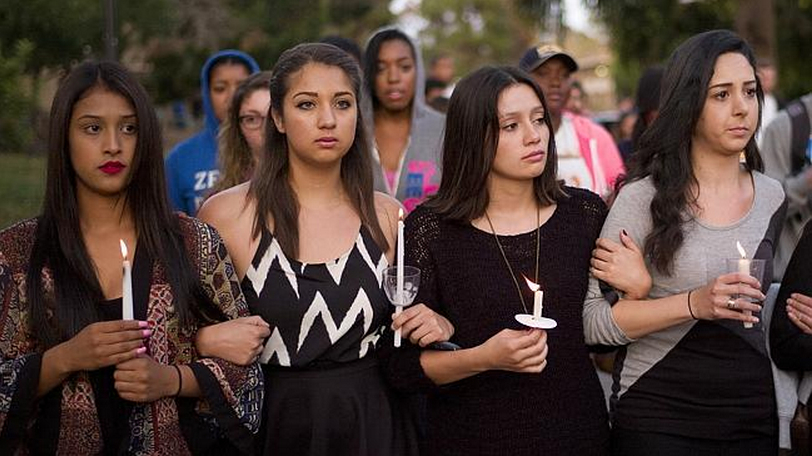![Students participate in a vigil honoring the memory of those slain by Elliot Rodger. [AP]](http://www.jstudentboard.com/reporter/wp-content/uploads/2014/06/JSR_June16_Vigil-300x168.jpg)
Rodger killed three students, George Chen, Cheng Yuan Hong, and Weihan Wang, in his apartment through violent stabbing. While roaming the streets of Isla Vista, Rodger also killed Christopher Ross Michaels-Martinez, Katherine Breann Cooper, and Veronica Weiss. Peers have commented on these 6 students’ great intelligence and citizenship. Students and staff of UC Santa Barbara mourned the lives lost, canceling classes and holding a memorial service on May 25.
Many current students at UC Santa Barbara have expressed their thoughts through social media. Eric Chen, a student at UCSB, shared through his Facebook account, “I just want to take the time to sincerely thank all of you for your concerns to the victims or to anyone who has affected in any way… As a community, we laugh together, cry together, and most importantly, stand together.”
On this matter, Christine Kim, a freshman at UC Santa Barbara, expressed, “It’s depressing to see people visiting the sites with flowers and simply standing there with tears in their eyes. Through this tragedy, teachers are vulnerable and showing their affection and care for their students. It makes me realize how blessed I am to be a part of a community where faculty and students come together to stand united.”
In addition to supporting the families and communities that have lost their loved ones, many people are using the incident to decry misogyny, which appears to have been Rodgers’ motive for the attack. Misogyny is defined by the Random House dictionary as “hatred, dislike, or mistrust of women.”
Beginning on May 24, the hashtag “#YesAllWomen” became a worldwide trend as Twitter users used it to display their support for women in the face of the misogyny and violence found in society. In her article, Rebecca Solnit described it as “a shining media moment.” Through many “likes” and “retweets,” people all around the world gained an opportunity to unite and speak out about the oppression experienced by women.

